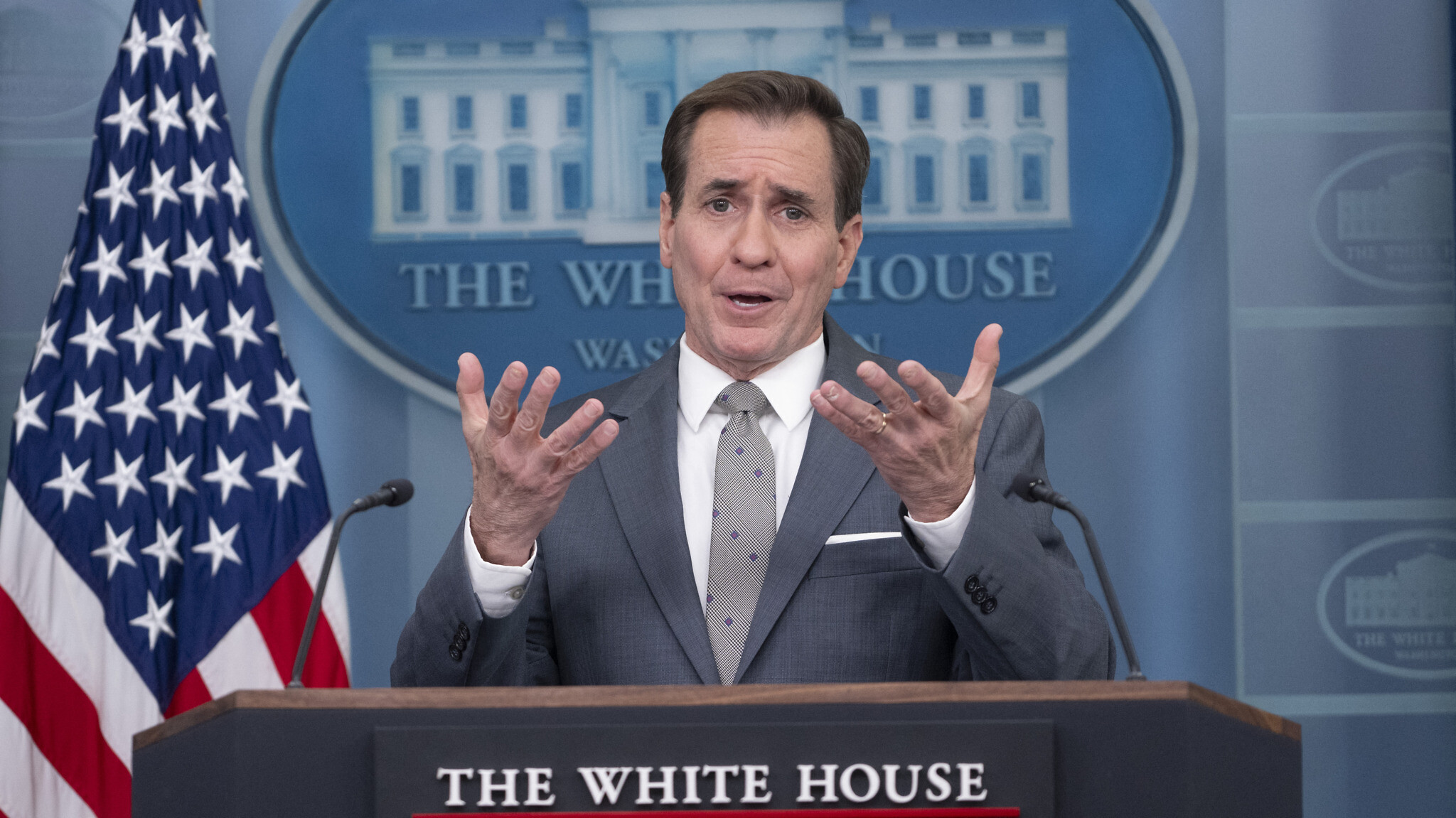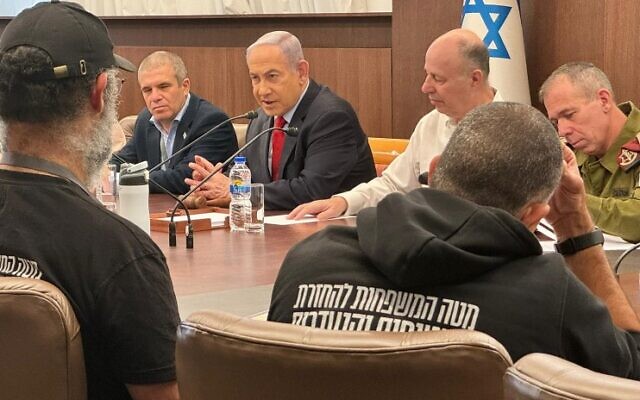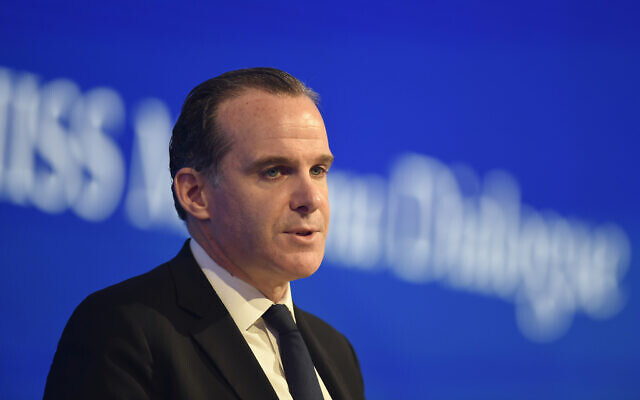



US President Joe Biden’s Middle East envoy held talks in the region Tuesday as hopes rose for a potential new deal to free Israeli hostages held by Palestinian terror group Hamas in exchange for a longer pause in fighting in Gaza.
The White House said it would support a pause that was longer than the week-long halt in November, as it confirmed that Brett McGurk was in Egypt for discussions and would visit other key countries.
Meanwhile, US Secretary of State Antony Blinken said Tuesday that the Biden administration was opposed to any permanent change to Gaza’s territory, but kept the door open to possible support for any “transitional arrangements” to resolve the conflict with Israel.
“If there needs to be transitional arrangements to enable that to happen, that’s one thing. But when it comes to the permanent status of Gaza going forward, we’ve been clear, we remain clear about not encroaching on its territory,” Blinken told reporters in Abuja, Nigeria.
The developments came after US news site Axios reported Israel had proposed to Hamas, via Qatari and Egyptian mediators, a pause of up to two months in exchange for the release of all hostages. Under the proposal, Yahya Sinwar and other top Hamas leaders in Gaza would be spared and allowed to relocate to other countries.
However, Hamas has rejected that offer, The Associated Press cited an unnamed senior Egyptian official as saying Tuesday. The official said that Hamas leaders have also refused to leave Gaza and are demanding that Israel fully withdraw from the territory and allow Palestinians to return to their homes.
Israel’s Channel 12 news quoted unnamed Israeli officials as saying that Jerusalem has not been informed of Hamas rejecting the offer.
Prime Minister Benjamin Netanyahu has reportedly told families of hostages in recent days that an Israeli offer for a deal is on the table, declining to elaborate.
On Tuesday evening, Channel 12 aired recordings of Netanyahu telling hostages’ relatives that Qatar acting as the mediator between Israel and the Palestinian terror group was “problematic,” and appearing to express disappointment with Washington for not applying more pressure on the Gulf state, which hosts Hamas leaders.
“Certainly one of the things [McGurk is] in the region talking about is the potential for another hostage deal, which would require a humanitarian pause of some length,” National Security Council spokesman John Kirby told a briefing at the White House on Tuesday.
“The conversations are very sober and serious about trying to get another hostage deal,” he said, though he later clarified that he would only characterize the talks as “discussions,” and not “negotiations,” explaining that there was a long way to go before an agreement.
Hamas-led terrorists kidnapped 253 people from Israel to the Gaza Strip on October 7, when thousands rampaged through southern areas and killed some 1,200 people amid horrific acts of brutality.
It is believed that 132 hostages abducted that day remain in Gaza — not all of them alive — after 105 civilians were released from Hamas captivity during a weeklong truce in late November in exchange for Palestinian security prisoners held in Israeli jails over terror offenses or suspicions. Four hostages were released prior to that, and one was rescued by troops. The bodies of eight hostages have also been recovered and three hostages were mistakenly killed by the military. The IDF has confirmed the deaths of 28 of those still held by Hamas, citing new intelligence and findings obtained by troops operating in Gaza.
One more person has been listed as missing since October 7, and their fate is still unknown.
Hamas has also been holding two Israeli civilians, Avera Mengistu and Hisham al-Sayed, who are both thought to be alive after entering the Strip of their own accord in 2014 and 2015, respectively, along with the bodies of fallen IDF soldiers Oron Shaul and Hadar Goldin since 2014.
Kirby said the White House would back a new pause, but declined to specify a timeframe.
“If that would give us the opportunity to get hostages out and get more aid in, we would absolutely support a humanitarian pause of a longer length than the week that we were able to accomplish,” he added, stopping short of expressing backing for a permanent ceasefire.
A new break in fighting could in theory contribute to a longer-term peace between Israel and Hamas, the White House spokesman added, while cautioning that discussions were at an early stage.
“It’s possible that could have some larger implications for the conflict itself, but it’s just too soon to know right now,” said Kirby.
Qatari Foreign Ministry spokesman Majed Al Ansari struck an optimistic tone about mediation efforts during a press briefing Tuesday, saying, “We are engaging in serious discussions with both sides. We have presented ideas to both sides. We are getting a constant stream of replies from both sides and that in its own right is a cause for optimism.”
Netanyahu has faced mounting pressure after Israel lost 24 soldiers on Monday in its worst day of troop losses so far in Gaza, and over the failure to bring the remaining hostages back.
The stated war aim of destroying Hamas is reportedly increasingly viewed as incompatible with returning hostages.
Kirby, however, said that “only the Israelis could answer” whether the troop losses in particular would be a factor in their negotiations.
“It was a terrible day for the IDF yesterday, that’s an enormous amount of troops to lose in one day,” he said.
Biden has stood firmly behind Israel since the October 7 onslaught, but there have been growing tensions with Netanyahu over the number of Gazan casualties and over Israel’s plans for when the war ends.
Hamas says over 25,000 people have been killed in Israel’s relentless military operation launched following the Hamas massacre. That figure is unverified, doesn’t differentiate between terror group members and civilians, and includes civilians killed by hundreds of misfired Palestinian rockets. Israel says it has killed over 9,000 Hamas members, in addition to 1,000 killed in Israel following the mass October 7 invasion.
On Sunday, The Wall Street Journal reported that the United States, Egypt and Qatar were pushing Israel and Hamas to accept a comprehensive plan that would end the war, free the hostages, and ultimately lead to full normalization for Israel with its neighbors in return for a path to Palestinian statehood.
Netanyahu responded in a video statement, refusing outright to “the end of the war, the exit of our forces from Gaza, releasing all the murderers and rapists of the Nukhba [forces] and leaving Hamas intact.” These, the prime minister said, were the Palestinian terror organization’s demands. However, the next day, the premier was reported to have told relatives of hostages that no Hamas proposal was on the table.




